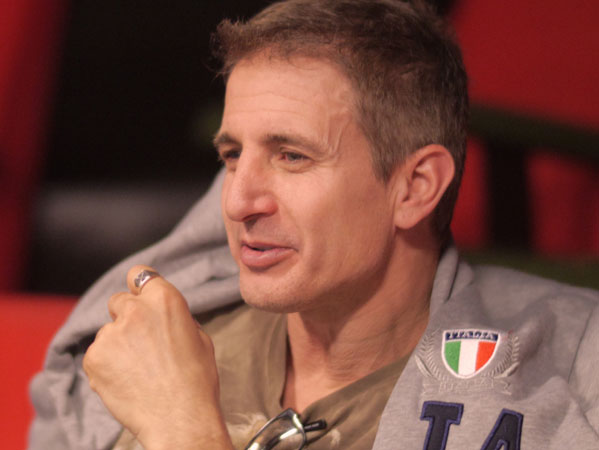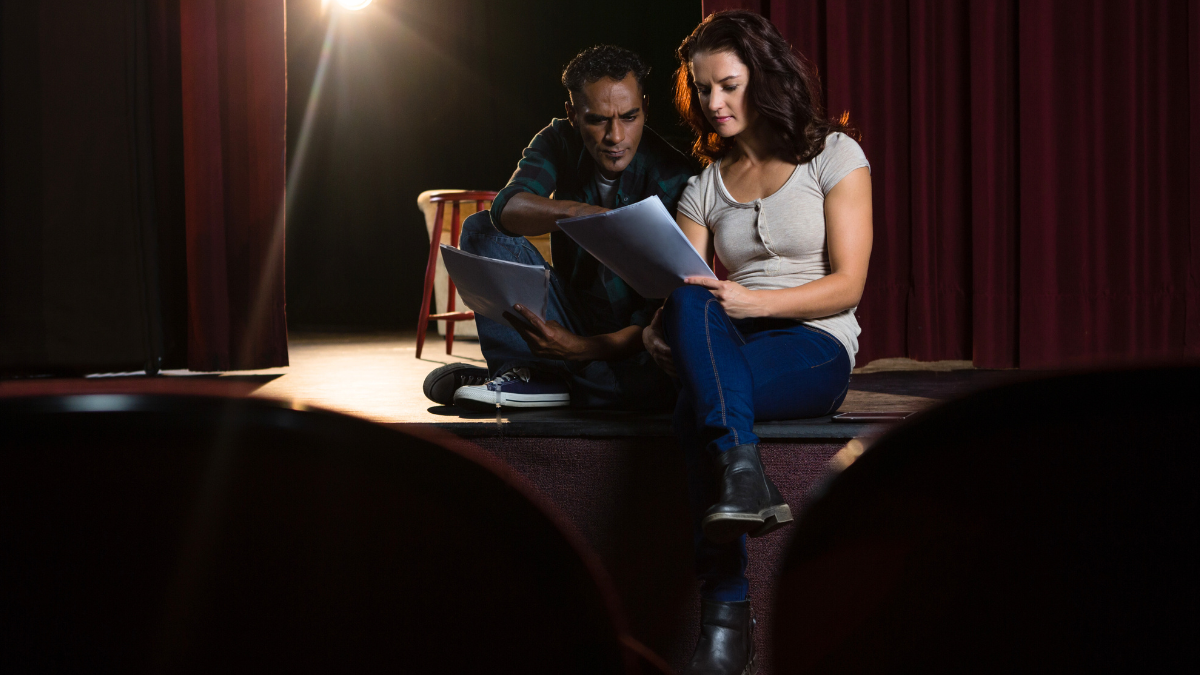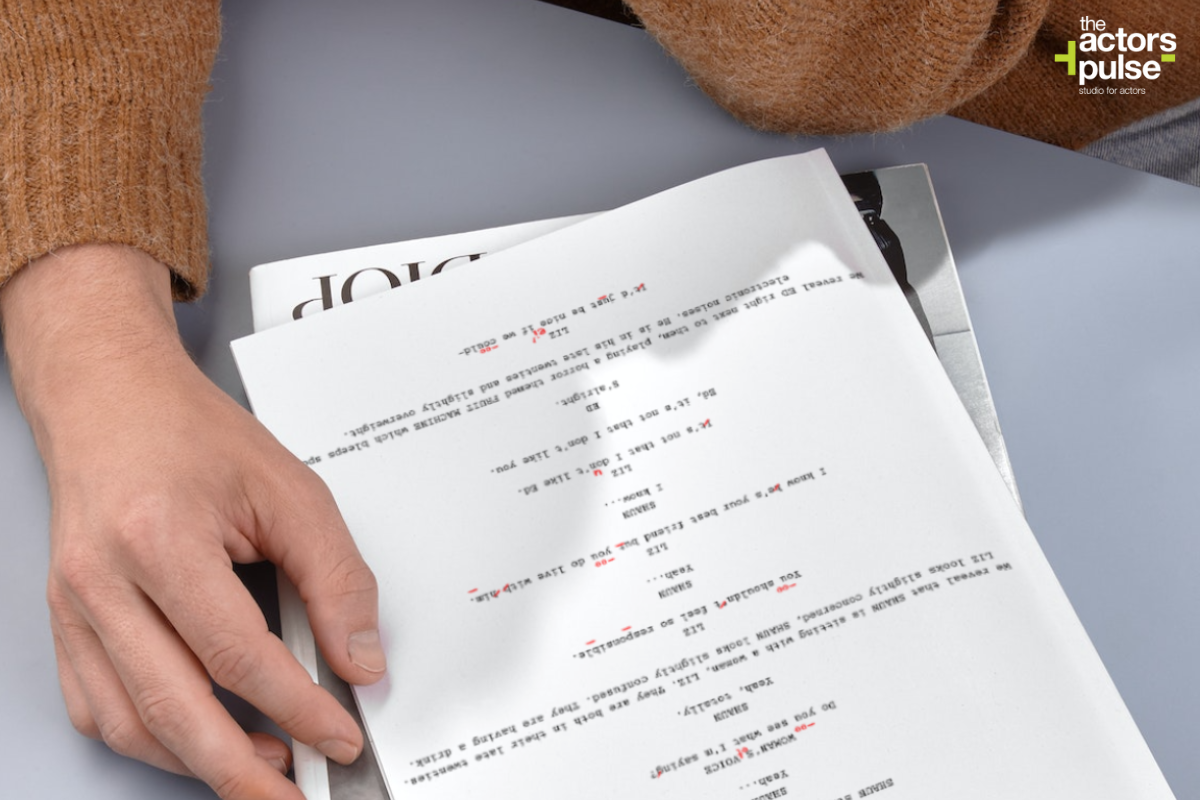Dialect coaching: Why it’s important and how to find the right coach
Contents
ToggleHave you ever watched a film or play and been put off by a terrible accent?
The truth is, we all have! A poorly executed accent or dialect can have a seriously detrimental effect on not only an audience’s enjoyment of a performance but also on an actor’s success in the industry.
This is because mastering accents and dialects can significantly enhance an actor’s versatility and believability in portraying diverse characters. Make them more highly sought after as a talent and more popular with audiences.
If you’re an actor seeking to master accents or dialects or have found yourself wondering ‘Do I need a dialect coach?’, we’re here to help.
In this guide, we’ll cover why mastery of this skill is so important as well as delve into how to find the right coach for your needs.
What Is Dialect Coaching?
Dialect coaching is the practice of learning how to craft different voice and speech patterns with the help of a qualified professional.
This may mean learning how to speak with a specific accent, how to alter speech delivery or ways to incorporate differences in language between regional areas.
The Importance Of A Great Dialect Coach
Whether you’re preparing for a stage play, film, or television role, having the ability to convincingly speak with different accents opens up a plethora of opportunities.
Ensuring you have an expert dialect coach supports you to:
Be Authentic & Versatile
An integral part of character portrayal, mastering accents adds depth and authenticity to a performance. It is only through dialect coaching, that actors can learn the skills needed to accurately replicate regional, cultural, or historical speech patterns.
Whether it’s mastering the broad Australian accent, cockney rhyming slang or nuanced regional dialect, a skilled dialect coach can help an actor achieve the level of authenticity required to deliver a believable performance and do so confidently.
Avoid Stereotypes & Misrepresentation
Inaccurate accents can perpetuate stereotypes and misrepresentations of particular communities or cultures. This is not only offensive, it can cause genuine hurt or distress.
Dialect coaches not only help actors avoid offensive caricatures but they are also experts in how to portray these roles in a way that fosters cultural sensitivity and respect.
Through dialect training, actors can avoid resorting to clichés or harmful stereotypes while bringing more value to their characters through genuine nuance and realism.
Access Greater Career Opportunities
Any actor seeking to expand their career opportunities should prioritise and invest in a dialect coach as proficiency in accents is an invaluable skill.
Casting directors will often look specifically for actors who can convincingly portray characters from diverse backgrounds. Whether it’s an international production, or one filmed in Australia, any project requiring a range of accents will see actors with dialect training in high demand.
This then opens doors to a wider range of roles, increasing an actor’s marketability and value in the industry. Additionally, it also demonstrates a commitment to professional growth which is a favourable attribute across the industry.
Enhance Your Communication Skills
Dialect coaching not only benefits actors professionally but also works to enhance their overall communication skills.
Learning to mimic different accents effectively requires keen observation, active listening, and incredibly precise articulation.
These skills, while very beneficial for stage or screen are also helpful in everyday interactions, facilitating more effective communicators both on and off-camera.
How To Find the Right Dialect Coach
Below are 7 steps we recommend you work through to find the right dialect coach for your situation and needs.
1. Research & Recommendations
Start by researching reputable dialect coaches in your area or those that offer remote teaching. Prioritise professionals with extensive experience working with actors in various settings, including theatre, film, and television.
Where possible, you should also seek out recommendations from fellow actors, directors, or industry professionals who have worked with dialect coaches in the past. If you have an agent or manager, they may be able to assist with this.
Be sure to check reviews within online forums, social media groups and other platforms dedicated to acting. These can prove a valuable resource for gathering not only recommendations but for providing insights based on first-hand experience.
2. Credentials & Training
When evaluating potential dialect coaches, consider their credentials and training background. Engaging a poorly trained and experienced dialect coach can have disastrous consequences for you as an actor.
Ideally, a dialect coach should have formal training in linguistics, phonetics, or speech pathology, as these disciplines provide a solid foundation for dialect coaching. A lack of formal qualifications is a red flag – this is not a career you simply fall into.
Additionally, it is advisable to enquire about their work experience. A coach who has worked with actors from diverse cultural backgrounds and is familiar with specific regional accents plus a proven work history in this field is essential.
3. Sample Sessions & Auditions
Just as with an acting coach, establishing whether a dialect coach’s methods and teaching style are compatible with how you learn can be integral to success.
For this reason, before committing to a dialect coach, we suggest scheduling a sample session or audition as a trial. Pay close attention to their communication style how patient they are and their ability to convey the nuances of accent work in an easily understandable way.
That said, a great dialect coach should be able to tailor their approach to your individual learning needs rather than you adjusting to their style.
4. Industry Connections
A dialect coach who has established connections within the Australian or overseas entertainment industry is ideal.
Demonstrated industry experience not only legitimises a coach’s position as an expert, but can also lead to valuable insights into casting trends, and audition expectations. It may also aid in the creation of networking opportunities and potential referrals for future projects.
5. Continued Support & Feedback
Dedication and practice are hallmarks of effective dialect coaching, but not easy to uphold without a coach who is committed to your long-term growth and success as an actor.
Finding a coach who provides a safe environment and who offers continued support, resources and constructive feedback beyond the initial training sessions can help you stay on track.
Stand Out.
Check our term dates, and enrol in classes today.
6. Flexibility & Adaptability
To help you maintain coaching sessions, it is recommended to opt for a dialect coach who is flexible and adaptable to your schedule and individual learning pace.
Whether you prefer in-person sessions, virtual coaching, or a combination of both, ensure that the coach can accommodate your needs.
As an aside, a coach who offers personalised training plans that are tailored to your specific accent goals and acting objectives is also worth prioritising.
7. Positive Reputation & Proven Experience
Lastly, consider the track record and reputation of the dialect coach within the industry. Seek out testimonials or reviews from past clients and collaborators to gauge their professionalism, effectiveness, and impact on actors’ performances.
Determining this will help you choose a coach that contributes positively to and becomes a valuable asset to your career development.

Delve Into Dialects With The Actors Pulse
At The Actors Pulse, we celebrate diversity and embrace the versatility and authenticity that dialect coaching brings to an actor’s tool kit.
As the leading school for the Meisner Technique in the Southern Hemisphere, we recognise that with the guidance of a skilled dialect coach, actors can confidently navigate the complexities of accent work.
Through our comprehensive curriculum and highly qualified team, we help you navigate the process of mastering dialects so you can deliver compelling performances that resonate with audiences worldwide.
To learn more, call The Actors Pulse today at 0414 475 515.

Billy Milionis is one of the few Australians to have ever studied under the legendary master teacher, the late Sanford Meisner. Billy has also studied story structure and scene analysis techniques with John Truby and later at UCLA. He has also spent several years doing improvisation in Hollywood with the L.A. Connection. In addition, he trained in the technique of Stella Adler, Practical Aesthetics and Lee Strasberg’s method.





